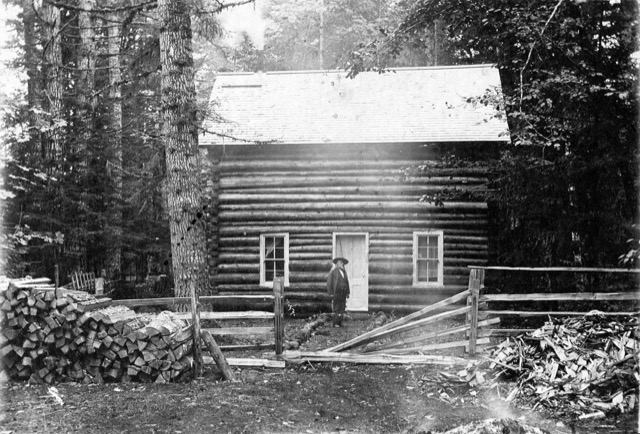Portland’s Buffalo Bill – William DeVeny
An Active Community Participant
In the early 1900s, Portland’s Montavilla neighborhood was home to one of its most fascinating figures: Dr. William DeVeny. Known as the “Buffalo Bill of Portland,” William DeVeny was a community leader, civic advocate, and larger-than-life character. His influence stretched beyond Montavilla and into the Mount Hood region, where he worked to improve access to the wilderness.
DeVeny’s striking appearance—long hair, a thick beard, and signature buckskin attire—earned him his nickname. According to some accounts, Buffalo Bill Cody himself gave him the title. Yet, DeVeny was more than just a local icon—he was a man of action.
A Visionary for Montavilla
DeVeny dedicated himself to improving Montavilla. As secretary of the Montavilla Board of Trade, he led efforts to attract new businesses, including a fruit cannery, chair factory, and broom factory. He also pushed for better schools, clean water, and libraries, believing these essentials would help Montavilla thrive.
One of his most ambitious projects was Montavilla’s annexation to Portland. He argued that annexation would bring stronger infrastructure, including deeper water mains to prevent freezing and increased school funding. Although his campaign initially failed, he continued to fight for it.
In 1907, he ran for city council, hoping to create more change. However, his campaign faced controversy when petition collectors submitted duplicate signatures. Though DeVeny did not commit fraud, officials removed his name from the ballot. This setback ended his political aspirations, but not his commitment to the community.
He saw the need for better roads in the region. To improve access, he led the construction of a road connecting the Mount Hood automobile road to Truman Road on the north side of the Sandy River. The project, called DeVeny Road, required the building of several bridges. This new route made travel easier for settlers, forest rangers, and tourists.
Building Roads to Mount Hood
DeVeny’s passion for development extended into the Mount Hood wilderness. He owned a cabin near the mountain, which he called The Scout’s Rest, inspired by Buffalo Bill Cody’s Nebraska ranch.
By 1913, construction was complete. This road became a key link for travelers and helped boost tourism in the Mount Hood region. Eventually, it was renamed Lolo Pass Road, but DeVeny’s work remains a vital part of the area’s history.
A Complex and Evolving Figure
DeVeny’s views changed over time. Once a supporter of military training for boys, he later spoke out against war, particularly as World War I approached. Some believe he changed his stance because his sons became eligible for the draft.
Beyond civic work, DeVeny was a skilled chiropodist (foot doctor) and an accomplished photographer. Alongside his wife, Martha, he operated photography studios before settling in Portland.
He also supported women’s suffrage and equal rights, reflecting a progressive mindset that was ahead of his time.
A Lasting Legacy
Dr. William DeVeny passed away in 1918 at age 65. The Oregonian honored him as a civic leader, community advocate, and friend of famous frontiersmen. His contributions to Montavilla and Mount Hood shaped Oregon’s history in ways still seen today.
Today, hikers in Mount Hood’s forests and residents in Montavilla’s streets walk paths influenced by his work. His life is a powerful reminder of how one determined individual can shape a community’s future.

